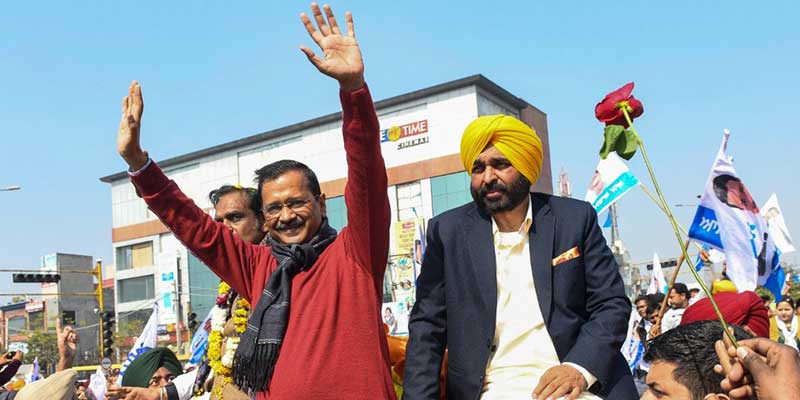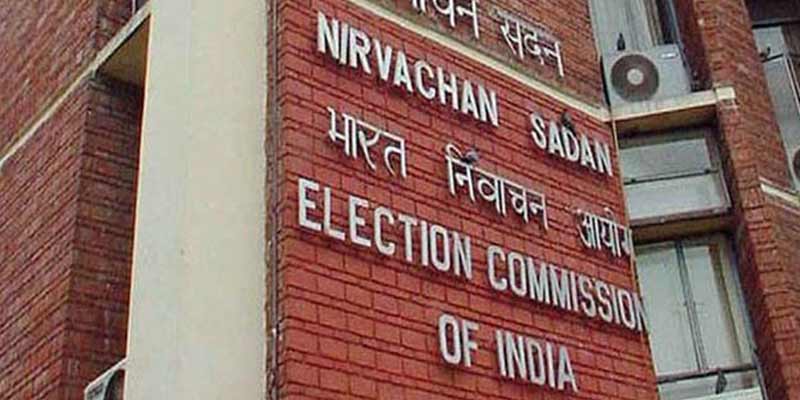- India
- Apr 11
How does a political outfit attain ‘national party’ status?
• The Aam Aadmi Party (AAP) was recognised as a national party while the Trinamool Congress, Nationalist Congress Party (NCP) and the Communist Party of India (CPI) were stripped of the coveted status by the Election Commission.
• The country now has six national parties — BJP, Congress, Bahujan Samaj Party (BSP), CPI(M), National People’s Party (NPP) and AAP.
• AAP was formed by Arvind Kejriwal in 2012 and went on to sweep the Delhi Assembly elections in 2015 and Punjab in 2022.
• The Election Commission said that the decision had been taken after a thorough review and consultations with the representatives of respective parties.
• In separate orders, the Commission revoked the state party status granted to Rashtriya Lok Dal (RLD) in Uttar Pradesh, Bharat Rashtra Samithi (BRS) in Andhra Pradesh, People’s Democratic Alliance (PDA) in Manipur, Pattali Makkal Katchi (PMK) in Puducherry, Revolutionary Socialist Party (RSP) in West Bengal and Mizoram People’s Conference (MPC) in Mizoram.
• The EC granted state party status to the Lok Janshakti Party (Ram Vilas) in Nagaland, Voice of the People Party in Meghalaya, and the Tipra Motha in Tripura.
• The NCP lost its state party status in Goa, Manipur and Meghalaya.
• Election Commission officials said the parties can regain their national and state party status based on their performance in future electoral cycles as also the Lok Sabha elections due next year.
How is a political party recognised?
• Any Indian citizen who is more than 25 years old and is registered as a voter can contest elections even without forming a party.
• Similarly, associations can also contest elections without getting registered by the Election Commission. They, however, will not be identified as political parties and hence will not be eligible for availing of benefits under the provisions of the Representation of the People Act, 1951 (RPA).
• There are many benefits of registering a party. Firstly, the RPA allows political parties to accept contributions voluntarily offered to it by any person or company other than a government company.
• Apart from this, candidates of registered parties get preference in allotment of election symbols. Other candidates are identified as independents and do not get preference in symbol allocation.
• Registered political parties, in course of time, can get recognition as state party or national party subject to the fulfilment of the conditions prescribed by the EC in the Election Symbols (Reservation and Allotment) Order, 1968, as amended from time to time.
• The recognition of political parties as state party and national party is governed by the provisions of 6A and 6B of the Symbols Order.
Conditions for recognition as a state party
A political party shall be treated as a recognised political party in a state if it fulfils any of the following conditions:
i) The party has to win 3 per cent of seats in the Legislative Assembly of the state in the General Election.
ii) The party has to win one Lok sabha seat for every 25 Lok Sabha seats allotted for the state in the General Election.
iii) The party has to secure a minimum of 6 per cent of votes in a state and in addition it has won one Lok Sabha or two Legislative Assembly seats in elections.
iv) The party has to secure 8 per cent of votes in a state in General Election to Lok Sabha or Legislative Assembly.
Conditions for recognition as a national party
A political party shall be treated as a national party if it fulfils any of the following conditions:
i) Secure at least 6 per cent of votes polled in four or more states in the Lok Sabha or Assembly elections, and, in addition, it has at least four members in the Lok Sabha.
ii) It also has to have at least 2 per cent of the total Lok Sabha seats and its candidates come from not less than three states.
iii) It is recognised as a state party in at least four states.
Both national and state parties have to fulfil these conditions for all subsequent Lok Sabha or state elections. Else, they lose their status.
Benefits of getting recognition
• If a party is recognised as a state party, it is entitled for exclusive allotment of its reserved symbol to the candidates set up by it in the state in which it is so recognised, and if a party is recognised as a national party it is entitled for exclusive allotment of its reserved symbol to the candidates set up by it throughout India.
• Recognised state and national parties need only one proposer for filing the nomination and are also entitled for two sets of electoral rolls free of cost at the time of revision of rolls and their candidates get one copy of electoral roll free of cost during General Elections.
• They get broadcast/telecast facilities over All India Radio / Doordarshan during General Elections.
• Political parties are entitled to nominate “star campaigners” during General Elections. A recognised national or state party can have a maximum of 40 “star campaigners” and a registered unrecognised party can nominate a maximum of 20 “star campaigners”. The travel expenses of “star campaigners” are not to be accounted for in the election expense accounts of candidates of their party.
Manorama Yearbook app is now available on Google Play Store and iOS App Store


